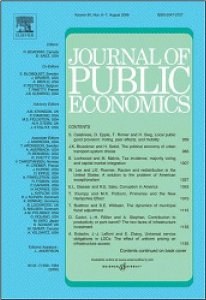
\van der Ploeg\, F. (2010). Aggressive oil extraction and precautionary saving: Coping with volatility Journal of Public Economics, 94(5-6):421--433.
-
Affiliated author
-
Publication year2010
-
JournalJournal of Public Economics
The effects of stochastic oil demand on optimal oil extraction paths and tax, spending and government debt policies are analyzed when the oil demand schedule is linear and preferences quadratic. Without prudence, optimal oil extraction is governed by the Hotelling rule and optimal budgetary policies by the tax and consumption smoothing principle. Volatile oil demand brings forward oil extraction and induces a bigger government surplus. With prudence, the government depletes oil reserves even more aggressively and engages in additional precautionary saving financed by postponing spending and bringing taxes forward, especially if it has substantial monopoly power on the oil market, gives high priority to the public spending target, is very prudent, and future oil demand has high variance. Uncertain economic prospects induce even higher precautionary saving and, if non-oil revenue shocks and oil revenue shocks are positively correlated, even more aggressive oil extraction. In contrast, prudent governments deliberately underestimate oil reserves which induce less aggressive oil depletion and less government saving, but less so if uncertainty about reserves and oil demand are positively correlated.